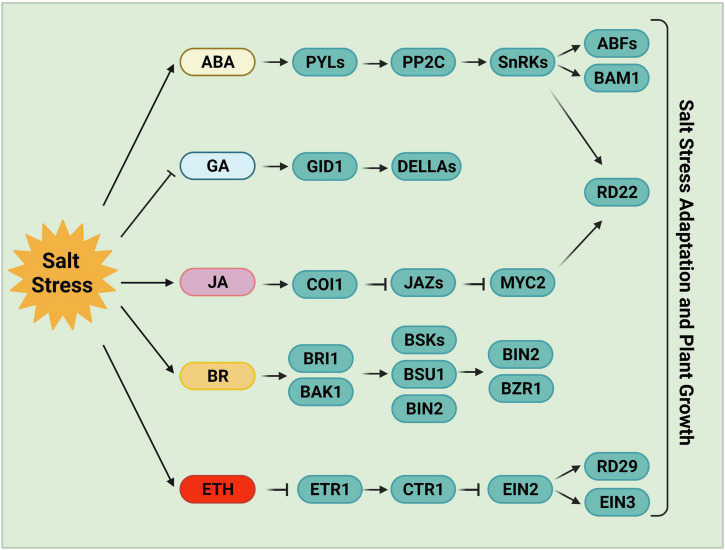FIGURE 2.
Phytohormone-mediated salt stress responses. ABA, one of the most important stress response hormones, plays a crucial role in salt stress tolerance. ABA-activated SnRK2s regulate stomatal closure, osmotic homeostasis, and gene expression. Salt stress negatively regulates the accumulation of bioactive GAs, and the reduced GAs levels or inactivated GAs promote plant salt tolerance following germination. JA levels increase and JA signaling is activated by high salinity stress. JA is required for the inhibition of primary root growth, which may be an adaptive strategy for survival under salt stress. BR, a growth-promoting phytohormone, accumulates upon salt stress to positively regulate plant salt tolerance. BR induces the formation of the BRI1-BAK1 heterodimer, which then initiates the phosphorylation relay cascades among BSKs, BSU1, and BIN2, ultimately remodeling gene expression via the regulation of BZR1 and BES1. Ethylene also accumulates under salt stress in plants. The components involved in ethylene homeostasis or the ethylene signaling pathway play either positive or negative roles in salt stress responses. ABA, abscisic acid; GA, gibberellin; JA, jasmonic acid; BR, brassinosteroid; ETH, ethylene.

